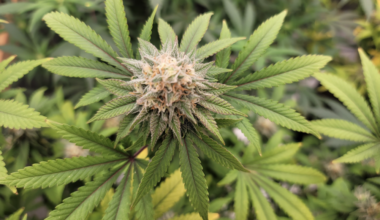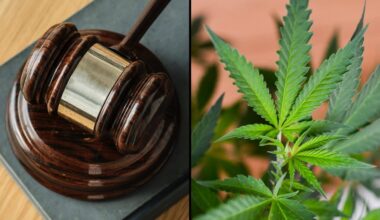The marijuana legalization movement has “drastically changed” the social media landscape for cannabis marketing, according to a new research paper that focused on Instagram trends.
While male-dominated, anonymous profiles have been a hallmark of illicit markets, that has largely shifted in the U.S. as more states have legalized marijuana. The researchers found that women are becoming the key “influencers” promoting cannabis through lifestyle-driven posts.
The study, published last month in Crime, Media, Culture: An International Journal, compared the profiles of 60 seemingly illicit sellers in Switzerland to 70 “cannabis influencer” profiles in the U.S., analyzing the visual and text-based differences.
“Our findings show that cannabis influencers on Instagram are changing the stereotypical characteristics of illegal cannabis culture as being almost entirely dominated by men, to one where cannabis is represented as a desirable accessory in certain feminine lifestyles,” the researchers said.
“Influencers’ role in transforming cannabis culture to become more mainstream and acceptable for women could potentially effect cannabis cultures globally, as well as ongoing legalization debates,” they wrote.
“Marketing of cannabis on social media have drastically changed as a result of legalization. Social media like Instagram allows for cannabis influencers to spread their messages about cannabis as an accepted consumption product to millions of people of diverse ages, genders, and nationalities.”
The authors acknowledged, however, that marketing marijuana on social media networks like Instagram is still a challenge under federal prohibition because companies are wary of being indirectly involved in illegal commerce, even if products are being promoted to people living in legal cannabis states.
Unlike illicit sellers who try to obfuscate policies banning direct sales, cannabis influencers in the U.S. have adapted, with disclaimers frequently explaining that they are not selling marijuana but simply showing how they incorporate the products into their lifestyles.
“When cannabis is marketed by legal influencers rather than illegal dealers, we find a shift in the use of symbols related to amateurism versus professionalism, intimacy and lifestyle and argue that these changes are bound up with how the influencers do gender differently than sellers,” they said. “In opposition to cannabis dealers, influencers are predominantly women, who tie their use of cannabis to authentic, yet calibrated displays of their lifestyle through the use of visually attractive images.”
“This shift in gendered symbolic leads us to discuss how some parts of the legal cannabis trade is branded as a desirable feminine accessory, which stands in stark contrast to the more masculine, underground symbolic of illegal cannabis sales on Instagram. More broadly, such a development of symbolic meaning within marketing might make cannabis more desirable for a broader cross-section of society.”
The study emphasizes that the “most apparent characteristic of the self-titled cannabis influencer profiles on Instagram was the dominance of women-identifying profile holders.” Those influencer posts were centrally about the person using the product, rather than the product itself.
By framing marijuana marketing in state-legal industries, influencers enable viewers “to imagine how they themselves could use cannabis products in various social and personal situations,” the study says.
“Through influencing, women’s role in mainstream cannabis marketing is no longer restricted to sales to men, which previously featured women mainly in cannabis-girl-of-the-month-posters or beauty pageants for the title ‘Miss Cannabis.’ As influencers, women take on active roles in making cannabis mainstream by relating cannabis use and products to their everyday activities. Influencing can be a way for women to take charge of the symbolic meanings of cannabis—and gender—by purposely placing themselves front and center for their own gain.”
“No matter whether the influencers’ role in cannabis marketing is woman-empowering, gender-disturbing or not, we see push within marked and culture towards changing the traditional cannabis culture of ‘hippie’ pot-smokers to also include motherhood, health and exercising, high-end city living, and other mainstream values,” the study concludes.
Instagram marketing shifts notwithstanding, it’s still the case that many so-called influencers and marijuana brands continue to struggle with major platforms that routinely cancel cannabis accounts for violating drug-related policies.
The marijuana technology company Weedmaps released a satirical ad in February that served as a commentary on the censorship that cannabis businesses face on social media and in mainstream advertising.
Separately, advocates accused Twitter of hypocrisy after it partnered with a federal drug agency last year to promote substance misuse treatment resources when users of the social media platform search for “marijuana” or certain other substance-related keywords—but no such health warning appears with results for alcohol-connected terms.
Photo courtesy of Pixabay/terimakasih0.
Medical Disclaimer:
The information provided in these blog posts is intended for general informational and educational purposes only. It is not a substitute for professional medical advice, diagnosis, or treatment. Always seek the advice of your physician or other qualified healthcare provider with any questions you may have regarding a medical condition. The use of any information provided in these blog posts is solely at your own risk. The authors and the website do not recommend or endorse any specific products, treatments, or procedures mentioned. Reliance on any information in these blog posts is solely at your own discretion.






